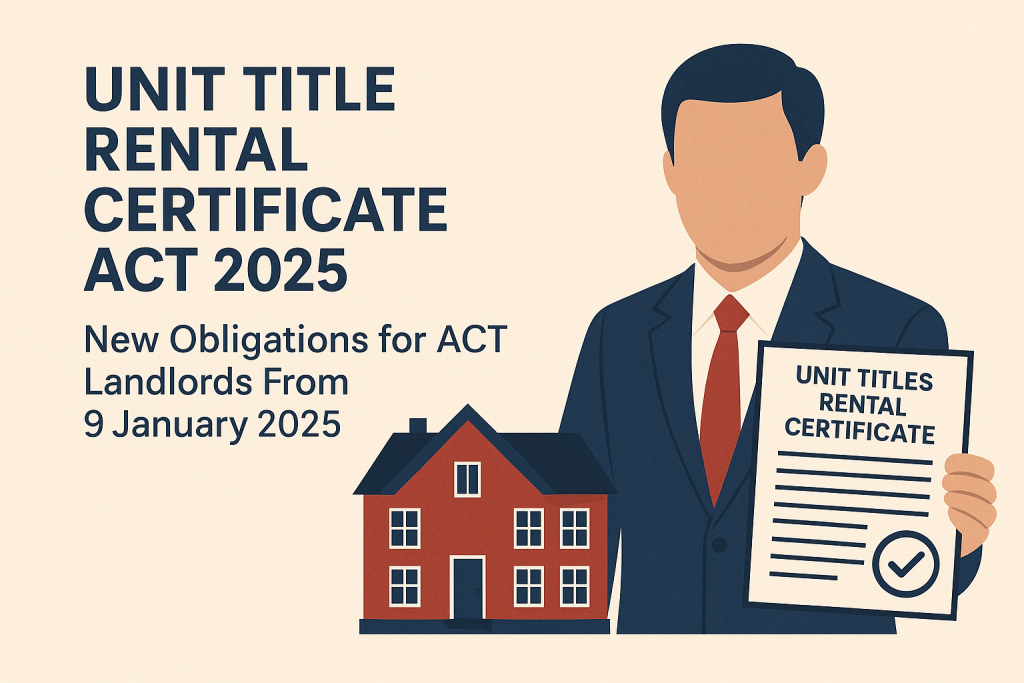From 9 January 2025, all landlords in the Australian Capital Territory (ACT) leasing unit title properties will be legally required to provide a Unit Title Rental Certificate to new tenants. This is part of the residential tenancy law reforms introduced through the Housing and Consumer Affairs Legislation Amendment Act 2024, which amends the Residential Tenancies Act 1997 (ACT).
These changes affect landlord obligations in the ACT and aim to improve transparency for tenants moving into units within buildings managed by Owners Corporations.

From 9 January 2025, ACT landlords must provide new tenants with a Unit Title Rental Certificate before signing. This article explains who is affected, what the certificate includes, and how to comply with the new law.
What Is a Unit Title Rental Certificate?
A Unit Title Rental Certificate is a formal document that landlords must obtain from the Owners Corporation before leasing a unit. It includes key information such as:
- The rules of the Owners Corporation
- Common property details
- Insulation information, including the R-value for Class A units
- Other prescribed content as set out in the regulations
These documents help prospective tenants understand their responsibilities and the nature of the building they are moving into.
When and How Does This Apply?
The obligations roll out in stages:
- From 16 July 2024, Owners Corporations must issue a Unit Title Rental Certificate upon request.
- From 9 December 2024, the certificate must comply with prescribed content requirements.
- From 9 January 2025, landlords must provide a valid certificate to all new tenants or when renewing a tenancy.
This means that if you are signing a new residential tenancy agreement after this date, you must ensure the certificate is ready and provided before the agreement takes effect.
Who Is Affected?
These reforms apply to:
- All residential tenancies in unit title properties in the ACT
- Private landlords, real estate agents, and property managers acting on behalf of owners
It is important that all parties involved in tenancy agreements understand these new obligations to avoid delays, disputes, or non-compliance.
What Are the Risks of Non-Compliance?
Failing to provide the certificate may lead to a breach of the Residential Tenancies Act 1997 (ACT) and could result in:
- Regulatory penalties
- Disputes with tenants
- Challenges to the validity of the lease
Given the ACT Government’s focus on residential tenancy reforms, compliance is critical.
What Should Landlords Do Now?
To prepare for these changes, ACT landlords should:
- Contact their Owners Corporation to understand how and when certificates will be issued
- Factor in certificate lead times before entering new lease agreements
- Update internal checklists and leasing workflows
- Review standard lease documentation to ensure it refers to the certificate
Legal Support for ACT Landlords
At Boettcher Law, we assist landlords, agents, and property professionals in the ACT with navigating legal changes. If you have questions about the Unit Title Rental Certificate ACT 2025, or broader ACT tenancy law changes, we are here to help.
Whether you need legal advice, compliance guidance, or updated documentation, contact our team to ensure you meet your obligations with confidence.